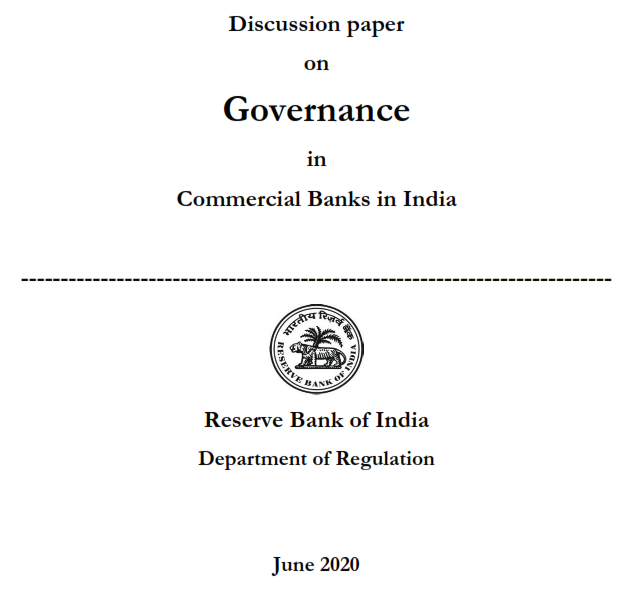EXECUTIVE SUMMARY. To address the woeful state of corporate governance in India’s banking sector, especially in the much fancied and widely covered private sector (in which foreign institutional investors are heavily invested), the Reserve Bank of India (RBI) released a discussion paper on ‘Governance in Commercial Banks in India.” Apart from limiting the tenure of CEOs, the banking regulator proposes a far more drastic measure to rein in CEOs by divesting them of the control roles of risk, audit and vigilance responsibilities, handing them over to sub-committees of the board chaired by independent directors. Such a dramatic restructuring effectively truncates the responsibilities of the CEO and executive directors to only the business side of banking; the critical control functions will be the responsibilities of sub-committees of the board led by independent directors, who will now have a more important day-to-day operational role in the bank. Passing the responsibility of control to independent directors may not be the solution, in light of the specialised expertise and considerable time required for these roles, and the abysmal track record of independent directors in managing the oversight of the executive management in private sector banks.
Apart from the general failure of independent directors in the private corporate sector in India, the RBI must own up to its responsibility of financial sector supervision, and it should not now try to transfer that responsibility to the bank boards, particularly their independent directors. The fiasco at ICICI Bank (Chanda Kochhar’s brazen conflict of interest), misgovernance by Shikha Sharma at Axis Bank and Romesh Sobti at Indusind Bank, and the failure of the Ravi Parthasarathy led IL&FS and Rana Kapoor as promoter-CEO at Yes Bank were direct fall-outs of RBI abdicating its role as a financial sector regulator and taking far too long to act. Whatever be the system of governance the regulator may want to implement, in the final analysis Parliament has given the responsibility to the RBI to regulate and supervise the sector, and sadly its role in these fiascos has been blameworthy, and it has not been held accountable. Although the RBI may implement better measures for corporate governance, it must at last play a more intrusive role in regulation. It must decisively intervene and if necessary remove errant executive management at an early stage. Until it does so, attempts to improve corporate governance practices may not help.














